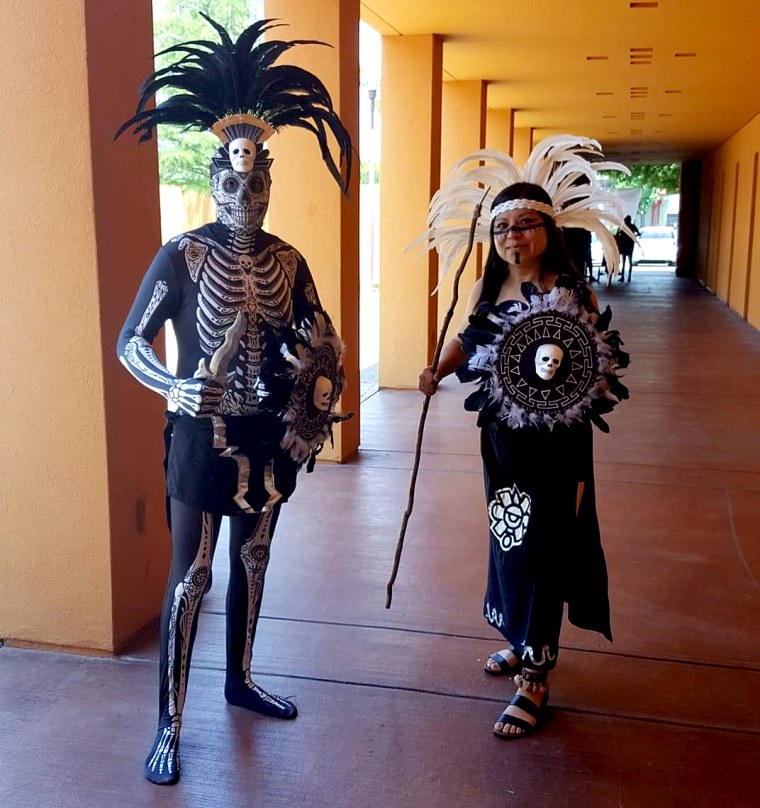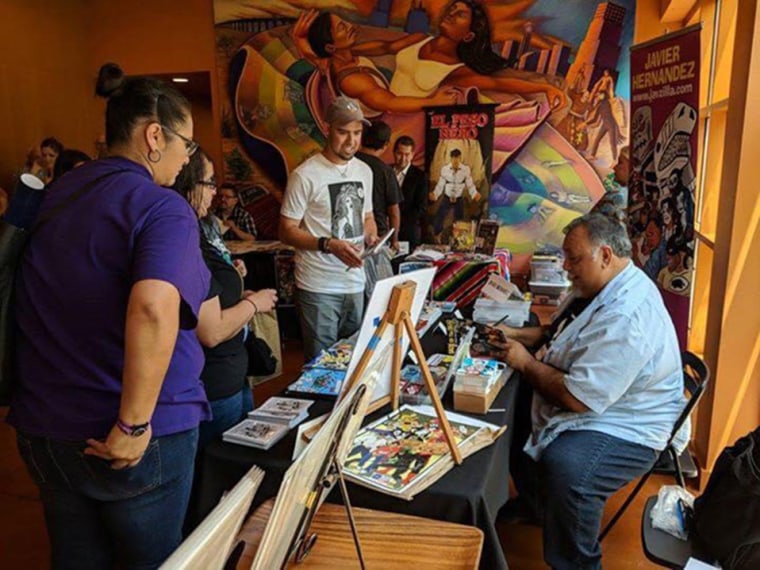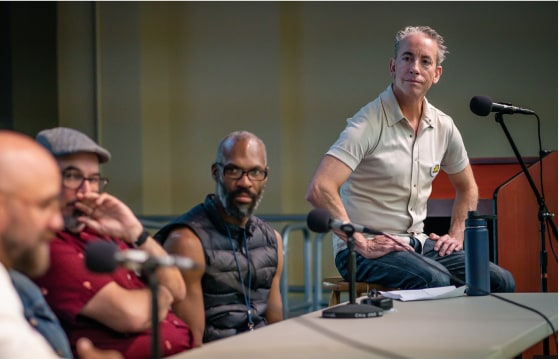Master comic book creator Stan Lee said that his superhero comics are the greatest stories ever told— but Latino comic book creators and fans rarely saw their stories reflected in mainstream superheroes.
Three Latino comic book conventions this month—all virtual because of coronavirus and free to everyone—are showcasing the creativity and diversity of the space created by Latino comic book artists.
“When we started our Expo adventure in 2011, people asked: Why are you doing this? Why are you separating yourselves? Why are you not trying to go to Marvel and DC?,” said Ricardo Padilla, Mexican-American co-founder of The Latin Comics Expo, the oldest and biggest Latinx comic book convention today.
“I think people can see now the importance of having a creative space to tell your story," said Padilla. "Comic books bring people together as a community. They celebrate who we are, especially when other spaces do not tell our stories.”
The three conventions this year will be hosted online via webinars, YouTube, and social media. SÕL-CON kicks off first in Ohio (September 10-12), followed by the Latino Comics Expo in California (September 13-19), and then the Texas Latino Comic Con (September 26).
While the Latinx community is sometimes described as a small country that exists inside a much bigger America, convention organizers say that their experience cannot be reduced to a one-size-fits-all story.

“There are many Latino stories. You can find autobiographical ones about growing up speaking Spanish, horror stories, historical pieces, superheroes, Latinas living in a macho society, you can find everything in Latino comics,” said Javier Hernández, Mexican-American comic book creator of the Aztec zombie superhero El Muerto and co-founder of The Latin Comics Expo. "But there’s no one defining story of a Latino creator or fan, and there shouldn’t be. Just like there’s no one defining story of a white creator.”
Hernández says that kids can use almost any kind of story as a springboard for their imagination. But when they see themselves inside a story it makes a lasting impression.
“As a kid, I enjoyed reading Spider-Man, Batman, and Superman. I loved all those white guys in colorful costumes,” said Hernández. “But there was one issue in a Spider-Man comic where the superhero White Tiger showed up. He was the first Puerto Rican superhero in Marvel. He spoke Spanish like me with my family at home. And that was a big deal.”

Héctor Rodríguez is the Mexican-American comic book creator of the cross-border superhero El Peso Hero and co-founder of the Texas Latino Comic Con.
“Hosting a Latino comic book convention in Texas was a tremendous accomplishment for us,” he said. “A lot of shows can cost between $35 and $45 a day," said Rodríguez, who is also an educator. "Our objective is to break down pay walls so that our community doesn’t have to pick between buying groceries and seeing their stories reflected in comics.”
Experts say that when children see themselves in stories it can plant the seeds for a lifetime commitment to reading. Latinx convention organizers see comic books as a bridge to literacy.
“Comic books are a great point of entry for anyone to read,” said Rodríguez. “And within our community, literacy is a gateway to other worlds that we haven’t been exposed to, especially with many of our urban school children who have limited education experiences.”
Some experts point out that language proficiency can be a determining factor for why students drop out of school. The Latino dropout rate has declined significantly, from 21 percent in 2006 to 8 percent in 2018, but it's still higher than the national average of 5.3 percent. Convention organizers say that comics can help Spanish-speaking students become bilingual.
“I come from a generation of monolingual kids that spoke Spanish and were trying to become bilingual,” said Frederick Luis Aldama, author of Your Brain on Latino Comics and co-founder of the SÕL-CON comics expo at Ohio State University. “Schools were really failing us. We were told not to speak Spanish, not to speak English with an accent, and sometimes we were even punished for it. So comics became a refuge for me.”
Aldama, whose parents were Guatemalan-Irish and Mexican, says that his love for comics started in the mid-1970s with the corner shop and the comic book spin rack. He recalled how superhero comics cost only a quarter. These stories helped him gain a level of literacy in English by learning how to match words with images. Ultimately, comic books became a valuable space in college that fostered his sense of identity.
“Back then, I wasn’t really going to comics to learn about my ancestral roots. I wanted to get out of my space as a little boy growing up in the Central Valley of Sacramento,” said Aldama. “But in college, I started awakening to the significance of what it means to be Latino, Latina, Latinx in this country. And from a comic book perspective, I started looking into what it means to be a creator, a thinker, a doer, someone who shapes history, but has also been willfully, deliberately erased.”
Today, Aldama says, many Latinx comic book creators are still unable to tell their stories in the mainstream. So they rely on their communities to lift up their stories.
“Latinx comic cons exist because we continue to hit barriers, gatekeepers, in mainstream spaces,” said Aldama. "Events like the San Diego Comic Con have become so interested in big tent Hollywood blockbusters that unless you’re a big name in DC, Marvel, or IDW, you’re not going to get any attention. So we need our communities to help us dissolve boundaries.”
Follow NBC Latino on Facebook, Twitter and Instagram.

